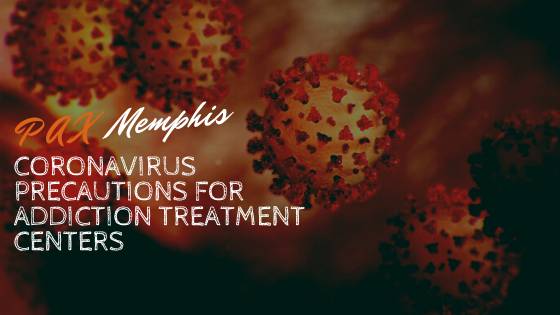As COVID-19 continues to spread throughout communities across the United States, individuals across the nation are beginning to prepare for the outbreak and further community spread. People who attend drug rehab programs or live in sober homes are constantly in social and therapeutic environments, exposing them to close contact with other people on a regular basis. Whether people are attending group therapy, living in a Tennessee sober home in close quarters with other people, or frequenting local support groups, they are particularly vulnerable to transmitting and becoming infected with diseases, such as the Coronavirus.
Many people choose to live in a sober home or halfway house after leaving treatment. While these sober living homes offer a safe and supportive place to get sober, they are typically comprised of shared rooms, bathrooms, kitchens, and recreational areas. These individuals may attend therapy during the day or 12-step meetings where they are constantly in contact with other people. While the Centers for Disease Control and Prevention suggests people avoid close contact, people in recovery may wonder how they can avoid large groups of people while living in a sober home and being in early recovery. After all, with the high transmissibility of the Coronavirus, one infected person could potentially spread the virus throughout local recovery communities and sober homes.
To protect the health of our patients, we have outlined a comprehensive guide with precautionary steps to take within sober living homes to protect against COVID-19.
Emergency Preparedness
Sober living home coordinators should take this time to review and edit their emergency preparedness plan, specifically tailored to combat a viral outbreak. For COVID-19, this means stocking up on goods like soap, detergent, over the counter medications, cleaning supplies, food, and more. Furthermore, emergencies can affect a sober living home’s social and operational guidelines. As a result, sober living home coordinators should have a contingency plan in place just in case a member of the home becomes ill.
Educate Staff and Community
Before you can begin preparing, however, it’s important to educate your staff members, house managers, members of the home, and anyone else involved in the sober home. The staff and house members should be informed about the symptoms and transmission of Coronavirus as well as how to mitigate community spreading. Everyone should also know what to do if they begin experiencing symptoms, what resources are available to them, and how they can limit exposure to the illness. Patients, staff, and families should all be informed of what the emergency preparedness plan is, how to carry it out, and what is expected of each individual.
Provide Preparedness Training
Once everyone knows what to expect, it’s time to provide training to any staff members or house managers of the sober living home. The CDC has published an extensive guide outlining steps that healthcare facilities can take to prepare for COVID-19. Preparedness training puts a heavy focus on personal hygiene, the use of personal protective equipment (PPE), preventing exposure, and how to isolate someone who is exhibiting symptoms of COVID-19. The more prepared and informed staff members are, the better. Preparedness training also helps ease fears and questions behind Coronavirus to help prevent panic from arising among members and families of patients the sober home.
Minimize Exposure Risks
While sober living environments don’t provide the same level of medical care as do treatment centers, doctors offices, or hospitals, there are ways you can minimize the risk of Coronavirus exposure. For example, promoting frequent hand washing, social distancing, and regular sanitization of shared living spaces helps prevent viral disease transmission. Although the lives of individuals in early recovery are typically busy and fast-paced, between groups, therapy, meetings, and more, here are some ways to reduce the risk of exposure in a sober living environment:
- Post signs and posters reminding people to wash their hands
- Place hand sanitizer in main areas and restrooms
- Provide disinfectant wipes for main areas, bathrooms, bedrooms, and by door handles
- Stock up on tissues, gloves, and over-the-counter medications
- Hold a meeting with the sober living home occupants about basic hygiene and social distancing
Operational Preparation
In addition to the basic preparation of household items, it’s important to prepare for significant shifts in the way a sober home operates. For example, if drug shortages are expected, it’s important to make sure that clients who take prescription medication have extra refills on hand. Additionally, if someone begins experiencing symptoms of Coronavirus, the entire sober living home and its occupants should know how to respond and what resources to call.
Preparing for Coronavirus in Sober Living Homes
With the panic being spread about COVID-19, it’s easy to get wrapped up in fear. However, taking these basic precautions can help you and the residents of your sober living home stay calm, become prepared, and minimize the risk of exposure to Coronavirus. At PAX Memphis, these basic emergency preparedness tactics help us protect our already vulnerable community.
Medically Reviewed: September 25, 2019

All of the information on this page has been reviewed and verified by a certified addiction professional.










